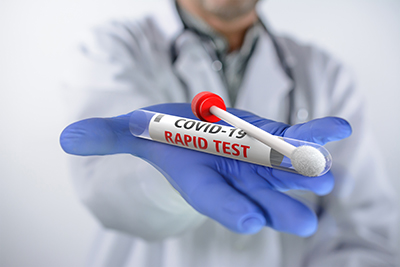 Most businesses are not requiring their employees to be tested for COVID-19, but some health experts think they should be, even though the long-awaited coronavirus vaccine rollout is underway.
Most businesses are not requiring their employees to be tested for COVID-19, but some health experts think they should be, even though the long-awaited coronavirus vaccine rollout is underway.
Mara Aspinall, professor of practice in the Arizona State University’s (ASU) College of Health Solutions, told the Society of Human Resource Management that the COVID-19 vaccine will not eliminate the need for testing, even as immunizations become more readily available this year.
“We don’t know if we will need a new vaccine every year, like the flu, or if you get one shot and it lasts a lifetime, like polio,” Aspinall said in a SHRM article published Jan. 7. Employers may want to make testing available to “avoid reopening and closing and reopening again” should a COVID-19 outbreak occur inside the workplace as more employees return in 2021.
Aspinall is the co-author of a recent ASU College of Health Solutions study, which found that only 17% of the more than 33,000 business and trade association leaders surveyed said their organizations are coordinating access to COVID-19 testing for their employees. The study, “Facing Uncertainty: The Challenges of COVID-19 in the Workplace,” found companies not testing employees most often cited the cost, difficulty, and concerns about test accuracy as the reasons for not doing it.
At the companies that are testing, 44% said they test for both the live virus and antibodies; 40% for the live virus only; and 8% for the antibodies only. The remainder did not specify the type of test.
When asked about the frequency of testing, only 19% tested employees daily. Thirty-seven percent said the testing was being done weekly; 6% tested every other week; 12% tested once a month; and 16% tested employees only when they were symptomatic.
Without government funding, employers may be unwilling to incur the expense of more regular testing, Aspinall told SHRM.
Under pandemic-relief legislation enacted last year, insurers are only required to cover COVID-19 testing for people with symptoms of the virus. “If you are screening broad numbers of people in a company every Tuesday and Thursday morning, it’s hard to say that’s symptomatic testing,” Aspinall told SHRM.

